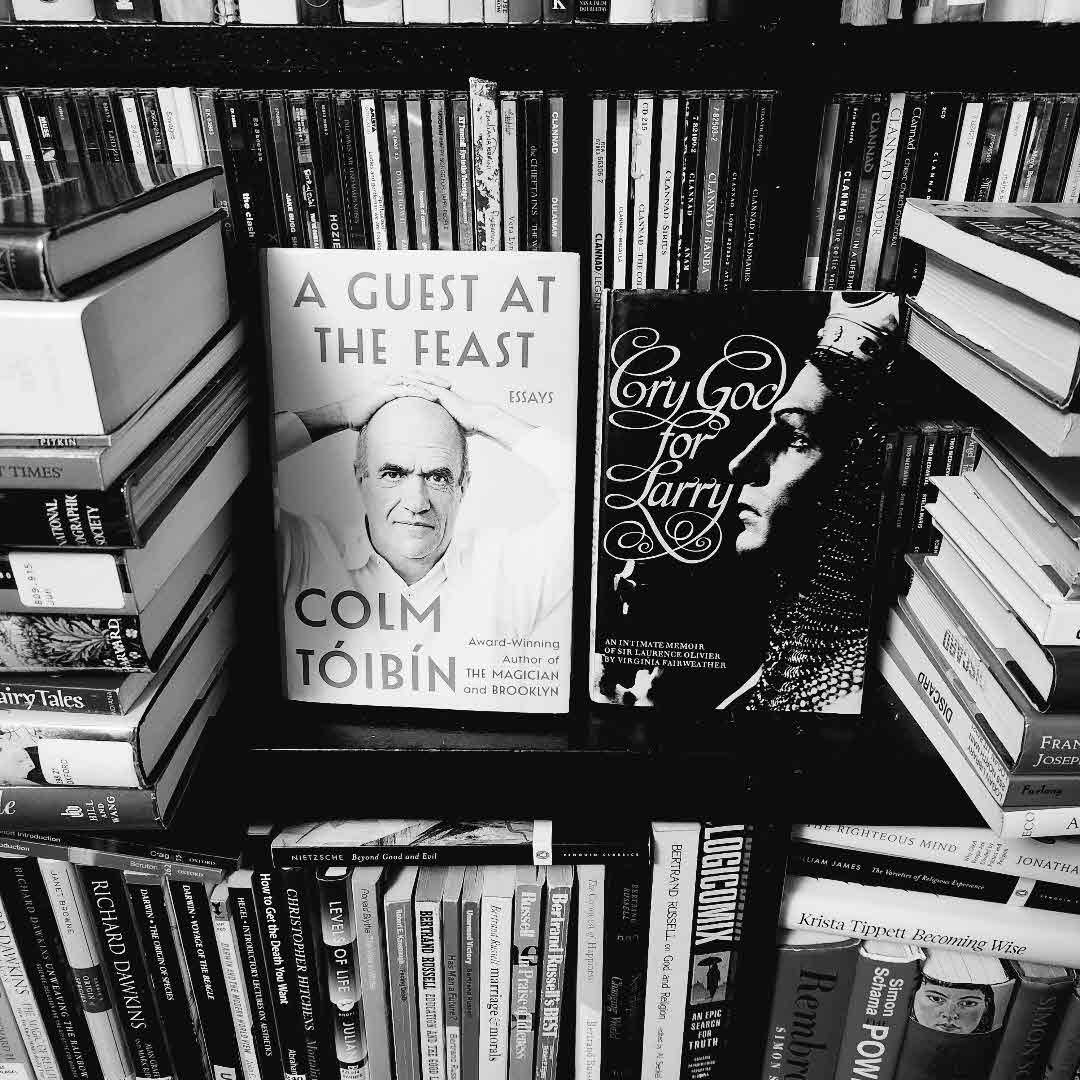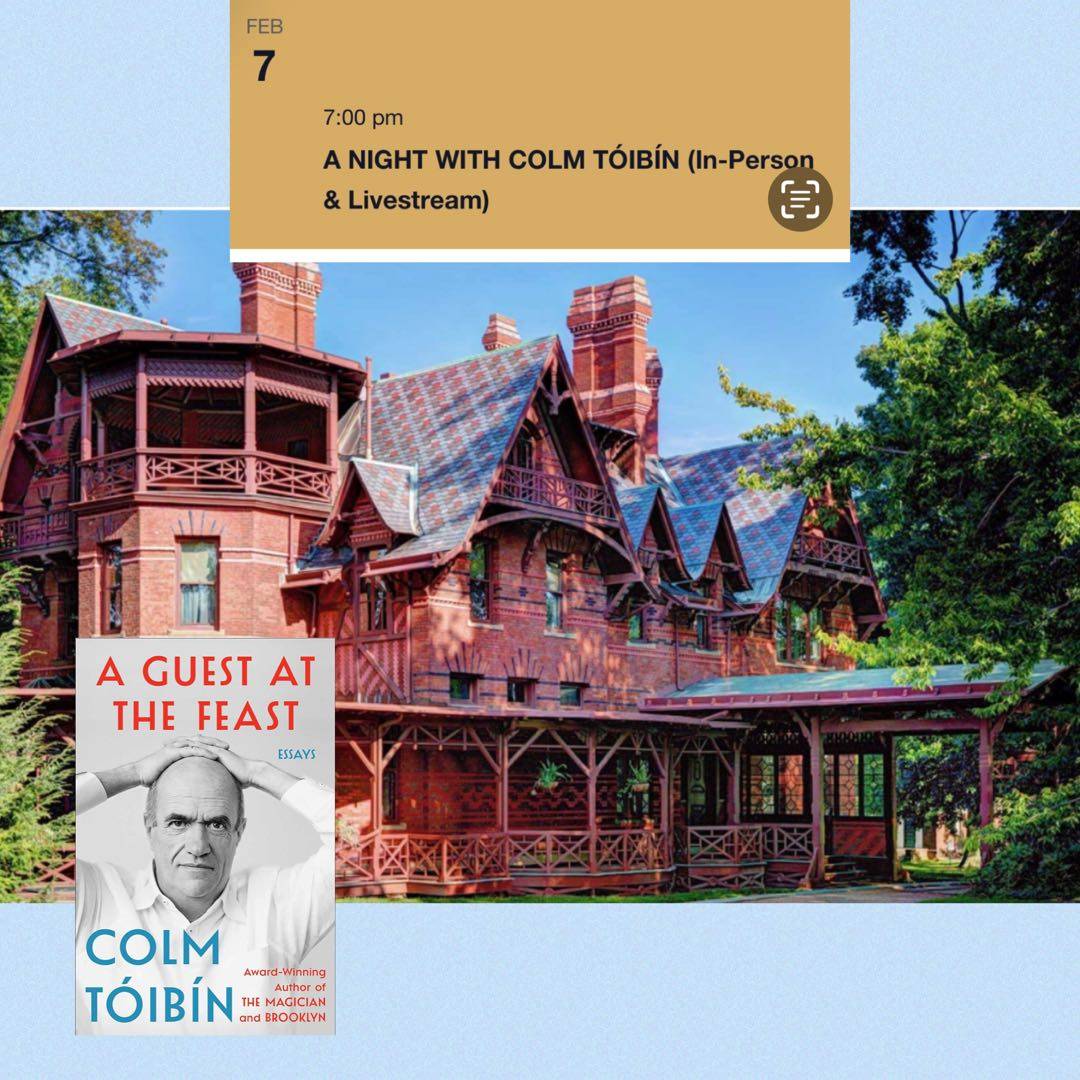All of us have a landscape of the soul, places whose contours and resonances are etched into us and haunt us. If we ever became ghosts, these are the places to which we would return.
All of us have a landscape of the soul, places whose contours and resonances are etched into us and haunt us. If we ever became ghosts, these are the places to which we would return.

Recent acquisitions:
📖 A Guest at the Feast: Essays by Colm Tóibín
📖 Cry God for Larry: An Intimate Memoir of Sir Laurence Olivier by Virginia Fairweather

A dear friend gave me a ticket to join her in a book talk by Irish born author Colm Toibin in early February.What an experience! He is an incredible story teller,witty,wise,full of heart.We laughed so much! I had no idea he was so prolific.He read a moving piece about his mother the only reader of books in her small remote village. His first essay starts with “It all started with my balls.”Who wouldn‘t read on after that opening sentence!🔽
...the knowledge that on Easter Monday 1916 my grandfather had lifted the floorboards of the front bedroom in Bohreen Hill and had taken out some rifles he had hidden there for use in the Rising, this made the house a more serious place. The idea also that my father's younger brother had died of tuberculosis in the house in Bohreen Hill.... this made it a place whose past grew more palpably interesting to me...
One day in the late 1960s I found three forbidden books on top of my mother's wardrobe, three novels that had been banned by the Irish censorship board....
This, then, was samizdat Irish-style where women in a small town who were curious about the outside world would learn to recognize each other and would exchange forbidden texts that dealt with sexuality and adultery.